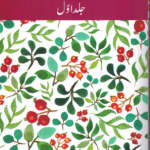Sawaal-o-Jawaab (‘Questions and Answers’)
(vol. 1) (Urdu)
By Maulana Wahiduddin Khan
Publishers: Goodword Books, New Delhi
(www.goodwordbooks.com)
Year: 2017
Pages: 222
Price: Rs. 100
The book provides helpful responses to many pressing questions that people are asking today as they seek to understand Islamic teachings in the present-day context.
Reviewed by Yusuf Khan
New Delhi-based Maulana Wahiuddin Khan is one of India’s most prolific Islamic scholars. Even at the ripe old age of 92, the Maulana is still actively engaged in what has been for him a life-long mission of promoting spirituality, inter-community understanding and peace. He is a remarkably accessible person, willingly to freely share his knowledge to those who approach him. All, but one of his books are copyright-free and are available on the Internet at no charge at all; at his weekly discourses at the Centre for Peace and Spirituality that he heads, members of the audience can ask him any questions they like; and his Urdu monthly magazine Al-Risala (founded in 1976) has for decades been a forum where readers can have their requests for the Maulana’s views on a range of subjects met.
Scholarly and Spiritual Guidance
This book is a selection of Maulana’s responses to questions put to him over a period of several decades”from the 1970s onwards”drawn principally from the Al-Risala magazine. Most of the questioners are Muslims, but some are from other faith traditions. The questions cover a range of issues, from the strictly personal to the international. Some questions have to do with issues offiqh or jurisprudence (such as related to prayer) and Islamic belief. Others are more philosophical (such as about the issue of freewill versus fate). Yet others relate to social concerns, such as Islamic teachings related to ecology and inter-community relations, or about conflict and supremacism in the name of religion. The questions reflect some of the core issues that many Muslims (and several others, too) today are seeking to grapple with and for which they seek scholarly and spiritual guidance.
A young woman who does not want to get married shares her anguish with the Maulana and seeks his advice. Someone who is vexed by some Muslims’ negative opinions about other faiths and their adherents requests for the Maulana’s opinion on the subject. Others request the Maulana to share his views about the conditions of the Muslims of India, on sectarianism among Muslims, about Islamist groups who propagate a politics-centric interpretation of Islam, about Islamic teachings related to peace and war, and so on.
Growing in Knowledge
The Maulana’s answers are, typically, brief and to-the-point. The Maulana’s ability and willingness to listen to and intelligently respond to all sorts of questions that are put to him is impressive. His answers reveal an understanding of religion that is truly relevant to our age.
In a note that opens the book, the Maulana has some wise things to say about the question-and-answer method of growing in knowledge and sharing one’s wisdom with others. He writes:
“The question-and-answer method is a very ancient one. It has many advantages, for both he who puts a question and for he who answers it. The fact is that asking questions and answering them is a method of mutual learning. This method provides both the one who questions and the one who answers to increase their knowledge through additional study. They can discover new aspects of the issue under discussion. In this way, this method is a means for the intellectual development of both.”
The Maulana has a word of caution here. It is not proper to ask questions unthinkingly, he stresses. It is not that one should not ask questions, he says, but, rather that, “If a question arises in the mind, then one should first ponder on it.” Islam, the Maulana says, lays emphasis ontadabbur (contemplation) and tafakkur (reflection). “Through contemplation, a person first makes himself ready in the intellectual sense. Only someone who has already made himself as a prepared mind can properly understand questions and answers”, the Maulana opines.
Intellectual Development
The Maulana explains that before asking a question to someone, one should oneself deeply reflect on the issue. In this way, one would “gain the benefit of intellectual development”. Before asking a question, the Maulana advises, one should try to find the answer to it oneself. “Don’t consider a question as simply a question”, he says. “Rather, make it a means for intellectual development”.
There is great wisdom that the Maulana shares in this book, born from decades of study of Islam, almost a century of personal experience and deep spiritual insight. The book could have done with careful editing, however. It lacks a table of contents, and the Maulana’s answers to the questions, which are on a vast range of issues, are simply bunched together, all jumbled up, not being classified subject-wise. Yet, despite this, this book is a treat. It provides helpful responses to many pressing questions that people are asking today as they seek to understand Islamic teachings in the present-day context. One hopes that the publishers will consider coming out with an English translation soon (sans the [mis-]editing flaws).
(Almost all of Maulana Wahiduddin Khan’s books can be freely downloaded from the website of the Centre of Peace and Spirituality: www.cpsglobal.org)


COMMENTS